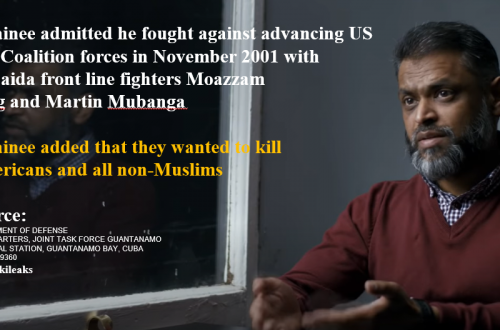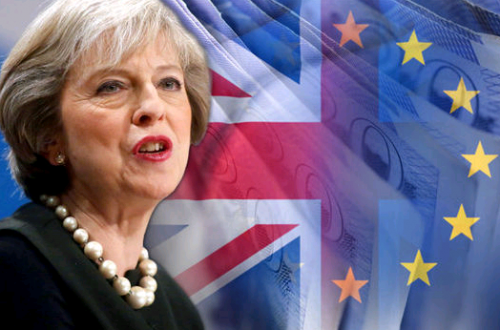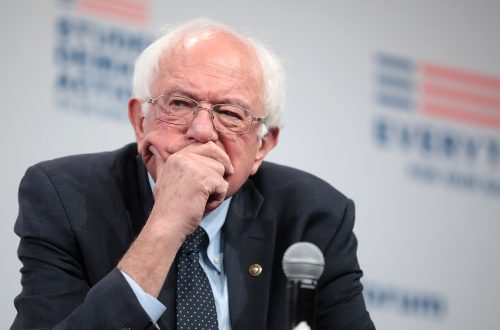This is a cross post from the CST Blog
CST welcomes the detention by UK Borders Agency, late last night, of Sheikh Raed Salah.
Salah is leader of the Northern branch of the Islamic Movement in Israel. He had entered the UK despite having been reportedly banned from coming into the country, and is now very likely to face deportation charges. Salah and his hosts strongly deny allegations of antisemitism that have been made against him, most of which concern alleged remarks in Jerusalem that have been widely reported since 2007/2008. They also question if his name was on a UK travel ban list.
Salah’s visit was scheduled to include a number of public speaking events, two of which, at Conway Hall, London and Leicester had occured prior to his arrest.
Most of the publicity regarding his visit had concentrated upon his speaking in theHouse of Commons tonight, alongside various pro-Palestinian activists and Jeremy Corbyn MP, Yasmin Qureshi MP and Richard Burden MP.
Salah’s Islamist ideology is reflected by those organising the events, most of whom are leading lights in Britain’s pro-Islamist, Muslim Brotherhood type circles, such as the MEMO group. These groups and activists seek to dominate the ideological and political leadership of Britain’s highly diverse Muslim communities. Many on the secular far Left have made common cause with these Islamist ideologues: not because they believe that British society will be a better place for having such groups dominate Muslim communities, but rather because both ideological streams are would-be revolutionaries with many enemies in common.
The fiasco over how Salah actually entered the UK, should not distract attention from the crucial fact that the Government has shown the meaningfulness and intent of its recent review of Prevent counter-extremism strategy. Salah’s banning and subsequent detention demonstrates that Government has now moved beyond only seriously challenging those who are explicitly pro Al Qaeda, or otherwise in favour of terrorism against Britain and British overseas forces and facilities.
Now, Government is also facing up to the enormous challenge of how to reverse the influence of those pan-Islamist groups such as the Muslim Brotherhood (including Hamas) and Jamaat-i-Islami, both of which make common cause and have significant control over British Muslims’ physical and political infrastructure; including an extensive network of lobbying groups, umbrella bodies, charities and mosques. Prior Governments have attempted to work with such groups (largely out of perceived necessity), but have repeatedly found them to be, ultimately, not conducive to the public good and social cohesion.
The Labour Party may also have shifted its position. Some Labour MPs have long mixed in the Islamist and secular pro-Palestinian circles demonstrated by Salah’s visit, and exemplified by the past behaviour of Ken Livingstone. The Shadow Home Secretary has criticised the Government’s handling of border controls, but such criticism risks rebounding unless Labour is able to rein in those MPs and Lords who move in such circles.
These issues go to the heart of Government policy towards counter-extremism, and towards its understanding of the well-resourced ideologues who are attempting to turn Britain’s diverse Muslim communities into a single politicised mass. It is not, as Salah’s supporters have inevitably alleged, evidence of some pro-Israeli or Zionist or Jewish plot at the heart of media and politics. For example, this statement by the Islamic Movement in Israel mixes all three:
Since Salah received the invitation to come to Britain, the Jewish lobby went crazy and did everything in its power to prevent the visit, so that the Zionist narrative remains the only narrative
This statement shows exactly why Jewish communities have every right to fear the antisemitism that permeates pan-Islamist politics. It should (but will not) shame those supposed anti-racists who offer unconditional support to Muslim Brotherhood and Jamaat types here in the UK and around the world, and who consistently lie that Jewish concerns about antisemitism are a fake cover for Israel.
Ultimately, this case is all about the Government’s understanding of pan-Islamist circles in the UK. These movements have every democratic right to operate here (so long as they stick to the law), but that does not oblige the rest of society to pander to them, to give them tax payers money and to uncritically appear upon their platforms. Of course, any serious attempt to engage in overseas dialogue and diplomacy in Muslim majority nations needs to properly include these elements: but engagement merely increases the importance of critically understanding who these people are and what world it is that they wish to create. The Government, therefore, is to be congratulated on its Prevent strategy and its efforts to better control those who would import and promote such politics (with its attendant hatreds) into the UK.


